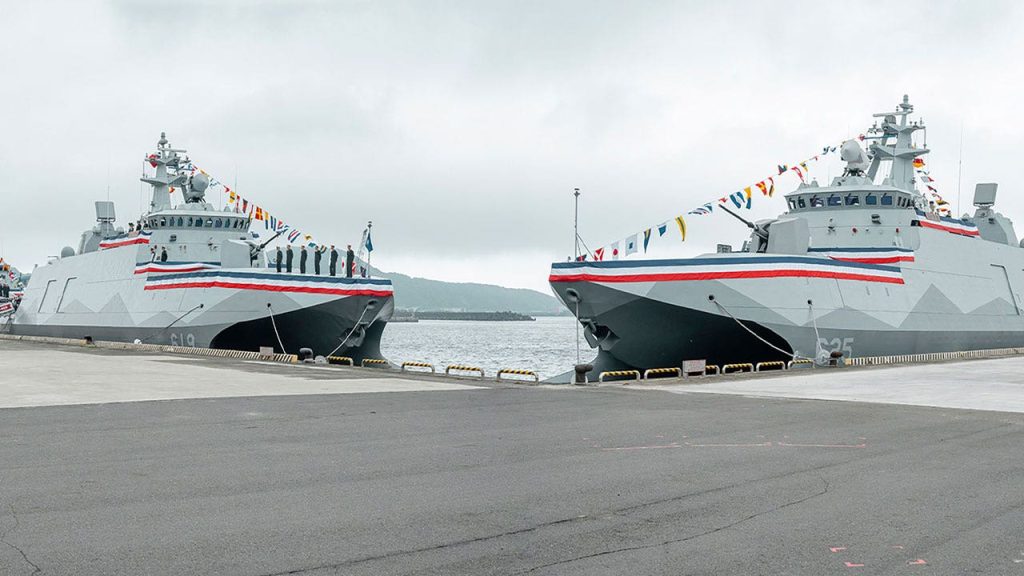Taiwan has commissioned two new navy ships to defend against the increasing threat from China, which has been escalating its naval and air force missions around the island. The Tuo Chiang class corvettes are part of the first order of six domestically produced catamarans with stealth capabilities. These ships are small in size but are fast, highly maneuverable, and equipped with missiles and deck guns to counter larger Chinese vessels and rocketry. President Tsai Ing-wen oversaw the commissioning at the port of Suao, highlighting Taiwan’s efforts to revitalize its defense industries and strengthen its defense capabilities with support from the United States.
In addition to the new navy ships, Taiwan has also accelerated the production of trainer jets and is working on building its first homebuilt submarines. President Tsai has faced resistance from the opposition Nationalist Party in pushing through budgets for these defense purchases, as the party favors eventual unification with China. Ma Ying-jeou, the last Nationalist Party president, is reportedly planning a visit to China next month, potentially including a meeting with Chinese Communist Party leader Xi Jinping. Taiwan’s complex history includes colonization by China, occupation by Japan, and splitting from the Republic of China during the Chinese Civil War in 1949.
China, under the leadership of Xi Jinping, has been focused on strengthening its military and asserting its territorial claims in the Pacific, the South China Sea, and along its border with India. With the world’s largest standing military and navy and a rapidly expanding economy, China poses a significant threat to Taiwan’s security. Recent tensions between Chinese and Taiwanese patrol vessels near Taiwan-controlled islands off the Chinese coast have raised concerns about a potential conflict that could involve the U.S., which is obligated to support Taiwan’s defense.
Despite being significantly outgunned by China, Taiwan’s military has been improving its weaponry and extending the period of national service for men to enhance its defense capabilities. The air force, navy, and missile corps regularly respond to incursions by Chinese ships and planes, and the Defense Ministry is on alert for a potential sneak attack from China. Both President Tsai and Vice President William Lai, who will succeed her in May, are considered separatists by Beijing and could be potential targets for a Chinese attack. Recent reports have shown Chinese military training grounds with mock-ups of Taipei’s Presidential Office Building.
The Chinese government has criticized Taiwan’s live-firing exercises planned near the Taiwan-held island group of Kinmen, just off the Chinese coast. A spokesperson for the Taiwan Affairs Office in Beijing warned that any provocative actions by Taiwan’s military are doomed to fail. The ongoing tensions between Taiwan and China, coupled with China’s military buildup and aggressive territorial claims, have raised concerns about the potential for a conflict in the region. Taiwan’s efforts to bolster its defense capabilities with new naval ships, aircraft, and submarines are part of its strategy to deter aggression and defend against Chinese threats.


